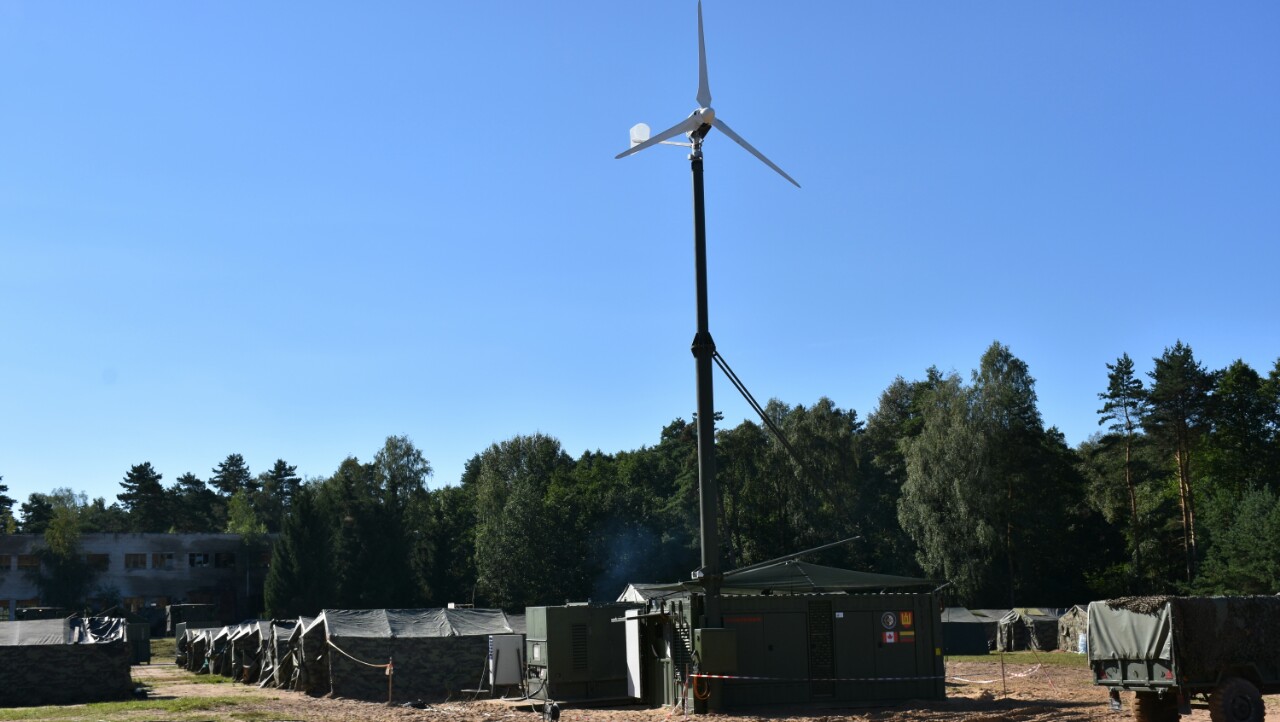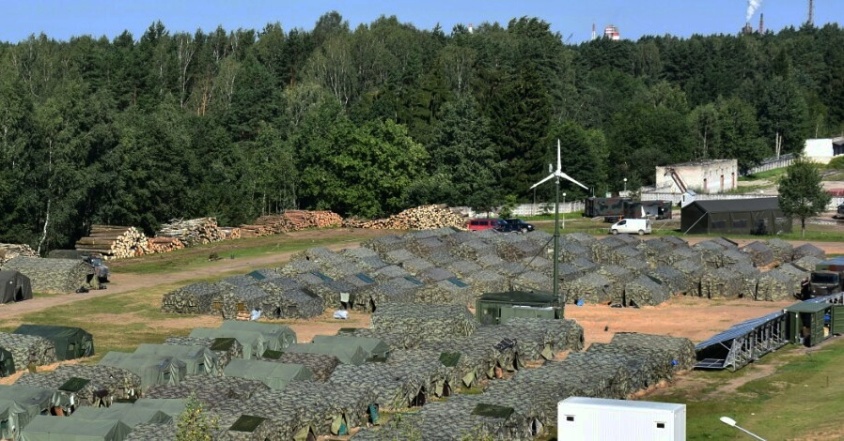NATO Energy Security Centre of Excellence and the Lithuanian Forces Logistic Battalion tested the usage of the deployable modular Hybrid Power Generation & management System
During the international exercise “Strong Hussar” 2016, the NATO Energy Security Centre of Excellence (NATO ENSEC COE) and the Lithuanian Armed Forces Grand Duke Vytenis Main Support Logistic Battaliontested the usage of the deployable modular Hybrid Power Generation & management System (HPGS). The HPGS was used to power the basic tented camp that accommodated the exercise participants and in a parallel test with same energy demand, demonstrated approximately 30% fuel saving.
The HPGS is an innovative power generation set that uses conventional fuel, renewable sources - wind and solar energy- and batteries to store the energy and incorporates an energy management system (EMS). The System components, which are housed in two 20’ ISO Containers, consists of 2 diesel Generators, a Photovoltaic array, wind turbine and an EMS including electrical storage and power electronics.
The electricity power obtained by renewable sources or traditional generators charge the batteries, releasing power in the required quantity demanded via the EMS, provides an average fuel saving in different conditions of 20% compare to normal generators. The use of HPGS, or similar systems, improves energy efficiency and facilitates the sustainment of military forces and diminishes the logistic footprint of troops in exercise and operation, contributing also to the environmental protection. This new system is capable of supplying power to different field infrastructures. The HPGS project was developed and delivered with Canadian funding.
The HPGS, in use by the Logistic battalion will be used in the future main exercises in Lithuania to further demonstrate the energy efficiency attributes of a hybrid system.



